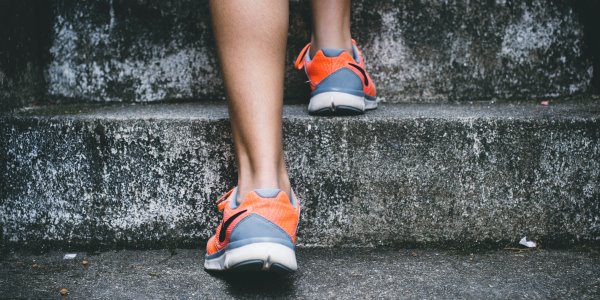Do you have resolutions and goals to achieve your body goals this year? Of course, you’ve probably planned to go on a weight loss diet, right?
Many of you might think that achieving an ideal weight means eating very little, skipping meals, and enduring hunger, as well as taking diet pills or supplements. The result is that your body quickly becomes weak and susceptible to sickness, and your body’s organs don’t function normally.
But actually, a healthy diet should keep you energetic and not feeling tired while you go about your day. How can you do that? Let’s find out in the following article!

How to Go About a Proper Diet
Before starting a diet, it’s important to change your mindset about losing weight in a way that keeps you healthy.
Here are some rules and ways to diet that follow healthy principles:
- Limit your food choices and portion sizes, but don’t be too strict or extreme.
- Your meals should consist of natural foods that are high in nutrients, not processed convenience foods. You can adjust your meal plan to include your favorite foods to keep your spirits up.
- Mix in vegetables, protein, fruit, and healthy fats to make sure your body gets all the necessary nutrients.
- Make sure you drink at least 2 liters of water every day.
Remember, friends! Dieting involves watching what you eat, but don’t make it a punishment for yourself. The most important thing is to get the right nutrients and keep your mood up, so you can stick to your diet and reach your weight loss goal.
Tips for a Healthy Diet to Stay Energetic
A healthy and suitable diet has positive effects on your body’s fitness. Also, it helps you avoid health risks if you do it right.
So, how can you properly follow a diet based on medical advice?
1. Calorie Deficit according to BMI

Generally, men need to burn a minimum of 2,500 calories a day, while women need at least 2,000 calories. To lose weight, a calorie deficit is the key. This means reducing the recommended daily calorie intake.
For instance, if you’re a woman who usually consumes more than 2,500 calories, during your diet, you should aim for around 1,300-1,500 calories.
To find out the right calorie deficit, it’s best to consult a specialist nutrition doctor or you can use our user-friendly calorie intake calculator. This tool can accurately measure it based on your body mass index (BMI), taking into account your current height and weight.
2. Control Portion Sizes and Meal Schedule
If you’re not familiar with calculating calorie deficits, you can simply limit your portion sizes. If you’re used to having a large meal on a standard plate, during your diet, you can switch to a smaller plate. Alternatively, you can take half the portion size you normally eat.
You should also adjust your meal schedule, especially for high-calorie foods. For instance, if you used to eat bread and pastries every day, during your diet, limit them to only Saturdays and Sundays.
3. Pay Attention to Food and Drink Nutrition
A healthy diet requires complete nutrition, including carbohydrates, fats, proteins, vitamins, minerals, and calcium. All these components are beneficial for your health and metabolism.

- Animal and plant-based proteins help build energy for muscle formation and support liver and brain function.
- Healthy fats improve your mood and help the body store energy by absorbing vitamins.
- Fiber from seeds and nuts helps prevent heart disease, stroke, and diabetes. Plus, fiber aids in weight loss.
- Calcium strengthens bones, prevents osteoporosis, and even helps prevent depression.
- Complex carbohydrates from vegetables, fruits, and grains are your main energy source. Consumed in appropriate amounts, carbohydrates also aid in weight loss and blood sugar control.
So don’t be afraid to eat rice or meat! It’s allowed, but remember to increase your fiber intake from vegetables and fruits while limiting your portion sizes. You can also opt for natural alternatives to replace high-carb and high-fat foods.
4. Stay Hydrated
Since you’re aiming for weight loss through a healthy diet, swap out sugary drinks you like with mineral water.
Drinking at least 2 liters of water daily can help curb excessive appetite when consumed before meals. Most importantly, water has zero calories, so you can drink it anytime, benefiting your health.
5. Enjoy Snacking Moderately
Many of you might fear indulging in snacks while on a diet, thinking it will hinder weight loss. However, snacks are still necessary during a diet, but you should pay attention to their composition.
It’s better to make your own snacks at home using nutritious ingredients like nuts, yogurt, fruits, and honey. If you’re looking for a delightful and nutritious way to snack, consider incorporating The Smoothie Diet program.
Nutrition specialists recommend enjoying occasional snacks during your diet. Aim for about 150 calories per snack.
6. Stay Active with Exercise
There’s a popular principle in dieting known as the 80/20 rule. This means 80% of weight loss comes from your eating habits, and 20% from exercise and physical activity.

So, exercising plays a crucial role in your weight loss journey.
Besides accelerating weight loss and body shaping, exercise has other benefits for physical and mental health:
- Strengthens muscles and bones.
- Reduces anxiety and stress.
- Increases energy levels.
- Lowers the risk of chronic diseases.
- Improves sleep quality.
It’s recommended to exercise for a total of at least 150 minutes of moderate-intensity workouts and at least 75 minutes of high-intensity workouts per week. You can split these workouts across 5 days each week. Make sure to tailor your exercise routine to your abilities.
7. Get Enough Sleep
Surprisingly, getting sufficient sleep is also a crucial aspect in achieving your desired body shape.
If you don’t get enough sleep, it might lead to consuming more calories, which could result in weight gain.
Additionally, sleeping less than 7-8 hours can negatively impact your health, causing decreased concentration, metabolism, and an increased risk of heart disease.
8. Consider Diet Supplements Carefully
There are various supplements that claim to accelerate weight loss, boost energy during exercise, or act as meal replacements. You might want to try some of these supplements, but always be cautious of their potential side effects, especially those in pill or herbal form.
Supplements can cause issues like diarrhea, digestive infections, dependency, increased blood pressure, heart strain, and insomnia.
Consult a specialist nutrition doctor for guidance on a healthy and energetic diet
Achieving a healthy weight contributes to a fit body and prevents rapid weight gain. This is because of a balanced diet and regular physical activity.
If you’re struggling to find the right eating plan for your body but still want to achieve your dream body goals, consult the nearest specialist nutrition doctor.



